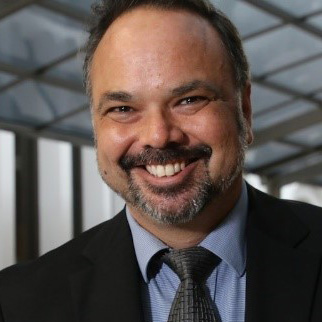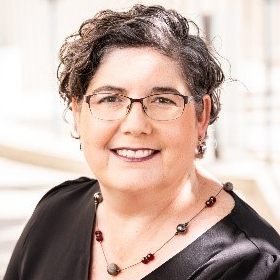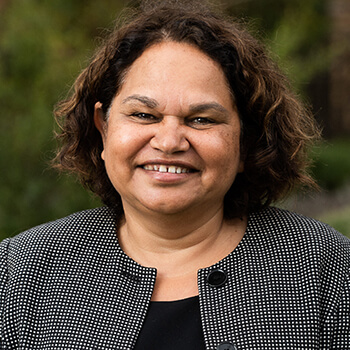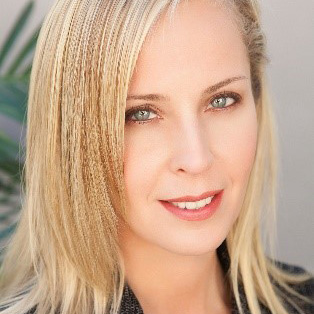
Prof Gareth Baynam
Professor Gareth Baynam is the Medical Director of the Rare Care Centre and its state-wide clinical service based as the Perth Children’s Hospital; Head of the Western Australian Register of Developmental Anomalies (birth defects and cerebral palsy registers); Clinical Geneticist and Program Director of the Undiagnosed Diseases Program WA; Foundation Board Member of the Undiagnosed Diseases Network International; and Adjunct Genomics Policy Officer in the Western Australian Health Department. He is affiliated with the University of Western Australia; Curtin University; Murdoch University; Notre Dame University; Melbourne University; and Telethon Kids Institute. He is the Founder of an integrated suite of cross-sector and community engaging initiatives to improve the lives of people living with rare diseases including Project Y, Cliniface (3D facial analysis for rare diseases diagnosis, clinical trials and device design) and Lyfe Languages (Universal Indigenous Medical Translator). He has partnered with the Aboriginal health care leaders and communities in WA over more than a decade to implement a range of state-wide initiatives to improve the equity for Indigenous people living with rare diseases. He Chairs and/or is one of the Executive or Advisories of multiple international rare diseases initiatives; and multiple National Institutes of Health in Europe, North America and Asia. He has personal connections to rare diseases.

Hannah Diviney
Hannah Diviney is one of the most impressive new young faces and voices in the public eye. The multi hyphenate is a writer and a disability advocate (her biggest work includes the wildly successful change.org petition encouraging Disney to create a disabled Disney Princess and making international news headlines after successfully getting both Lizzo and Beyonce to change ableist lyrics). She’s also an actress – having made her television debut in the groundbreaking SBS show Latecomers as arguably the first disabled person to lead a show in the world. Her feature film debut Audrey is set to hit cinemas in 2024. As if that wasn’t enough, she’s also the Editor in Chief of global grassroots youth newsroom Missing Perspectives, dedicated to platforming the lived experience of girls and young women around the world. Her debut book, I'll Let Myself In was released earlier this year.

Dr Stacey Dusing
Dr. Stacey Dusing is the Sykes Family Chair of Pediatric Physical Therapy, Health and Development, Tenured Associate Professor, and Director of Pediatric Research in the Division of Biokinesiology and Physical Therapy at the University of Southern California where she also directs the Motor Development Laboratory. She is a board certified pediatric physical therapy specialist with over 25 years of clinical and research experience working with infants and children. Her research focuses on postural control, reaching, early exploration and interventions to advance development in infants with or at high risk of having developmental disabilities. Equity in policy, health service, and diverse stakeholder engagement is integrated throughout her research, advocacy, and clinical implementation of interventions. Dr. Dusing received her BS in Physical Therapy from Daemen College in Buffalo NY. She earned her MS and PhD in Human Movement Science at The University of North Carolina at Chapel Hill and completed an NIH career development award at the University of Delaware. She is a graduate of the Leadership Education in Neurodevelopmental Disabilities (LEND) program.

Prof Sandra Eades
Professor Sandra Eades (BMed, PhD, FAHMS) is Deputy Dean Indigenous and Rowden White Chair in the Faculty of Medicine, Dentistry and Health Sciences at the University of Melbourne. Sandra is a Noongar woman from Mount Barker, WA, and is a recognised leader in Aboriginal health. Sandra was Australia’s first Indigenous person trained in medicine to be awarded a PhD. Professor Eades is an Initiating Fellow of the Australian Academy of Health and Medical Sciences. Professor Eades’ awards and recognition include the Lowitja Institute Inaugural Award for Leadership in Aboriginal health research (2015), the Medical Journal of Australia Research Publication Award (2013), and the NSW Public Health Association award (2007). In 2006 she was named the NSW Woman of the Year in recognition of her research contributions to Aboriginal communities, and in 2014 was recognised as one of 100 Aboriginal and Torres Strait Islander women living or deceased who have contributed positively to their communities in the Centenary of International Women’s Day.
Professor Eades has more than 100 career publications in the 14 years since the awarding of her PhD, including 90 peer reviewed papers of which 49 have been published in the last 5 years. The national relevance of her research can be seen in her highly cited papers which include the WA Aboriginal child health survey volume 1 (367 cites), psychosocial interventions for supporting women to stop smoking during pregnancy (708 cites), Ten principles relevant to health research among Indigenous Australian populations (163 cites), Indigenous women and smoking during pregnancy: knowledge, cultural contexts and barriers to cessation (186 cites), Infant care practices in a metropolitan Aboriginal population (60 cites), The health of urban Aboriginal people (83 cites), An intensive smoking intervention for pregnant Aboriginal women RCT (84 cites) and a Study protocol: our cultures count, the Mayi Kuwayu study, a national longitudinal study of Aboriginal and Torres Strait islander wellbeing (61 cites).
As CIA Professor Eades currently leads a NHMRC Population Health CRE (Aboriginal child and adolescent health improvement through Aboriginal leadership and collaborative research teams $2.5M) and major study of Aboriginal adolescent health as CIA ($2M). With collaborators, she is an investigator on NHMRC grants worth $13.4M including a role as CIC on a NHMRC Health Services CRE in Partnership Pathways to Better Care and Outcomes for Aboriginal Young People (2018-2022). Sandra also is a CI on the ARC Linkage Grant ‘Linking for Life’ which utilizes the Social Investment Data Resource with WA linked data from 1990-2021.
Contribution to field of research:
Within the field of child health Professor Eades early work influenced the introduction of Commonwealth funded maternal and child health services in Aboriginal Community Controlled Health Services through the Healthy for Life policy initiative; early cohort studies of infant health demonstrate very high rates of smoking in pregnancy among Aboriginal women and high rates of environmental tobacco smoke exposure among infants. She advocated heavily for investments to tackle high rates of Indigenous smoking with much greater investments post the release of the first Indigenous Burden of Disease report. In addition to her work in child health Professor Eades led the completion and publication of the only international randomised controlled trial of a smoking intervention for pregnant Indigenous women. She has implemented a second randomised controlled trial of a tailored intervention to improve primary health care for type 2 diabetes among ACCHOs.
Beyond RCTs, Professor Eades has conceptualised and supervised research resulting in the publication of key methodological papers which strengthen our understanding of the psychometric properties and utility of measures of psychological distress in Aboriginal people. The first addresses the use of the Strengths and Difficulties Questionnaire with Aboriginal children and youth (Williamson 2013) and the second addresses the use of the K10 with older Aboriginal people (McNamara 2014).

Dr Elizabeth Laugeson
Dr. Elizabeth Laugeson is a Clinical Professor in the Department of Psychiatry and Biobehavioral Sciences at the UCLA Semel Institute for Neuroscience and Human Behavior and is a licensed clinical psychologist. Dr. Laugeson is the Director of the UCLA Tarjan Center, University Center for Excellence in Developmental Disabilities, and is the Founder and Director of the UCLA PEERS Clinic, which is an outpatient hospital-based program providing parent-assisted social skills training for individuals from preschool to adulthood. She also serves as the Program Director for the Predoctoral Psychology Internship Program in Autism and Neurodevelopmental Disabilities at UCLA. Dr. Laugeson has trained tens of thousands of mental health professionals, educators, and families worldwide, and is dedicated to developing and testing evidence-based treatments to improve social skills across the lifespan and across the globe. As one of the only empirically supported and internationally recognized social skills programs for neurodivergent youth, her program is currently used in over 150 countries and has been translated into over a dozen languages.